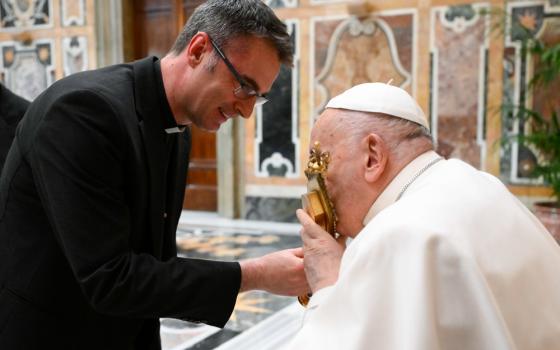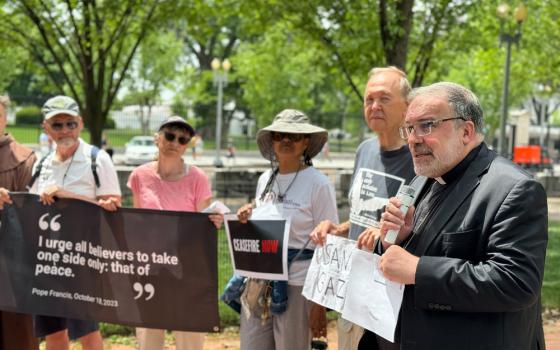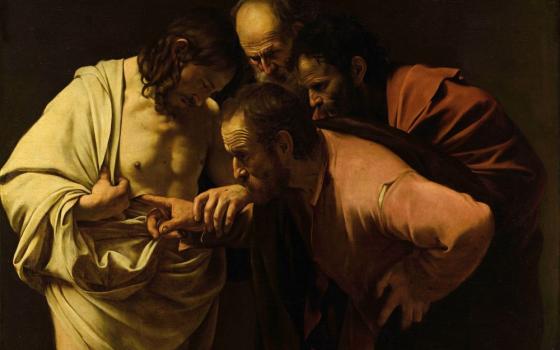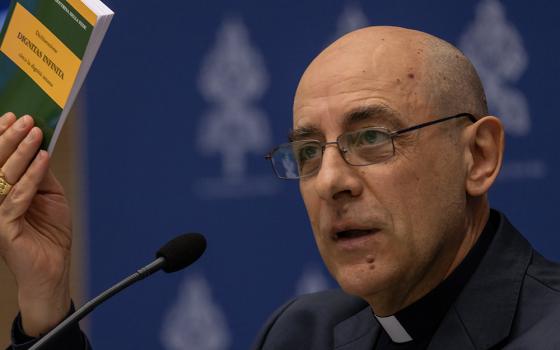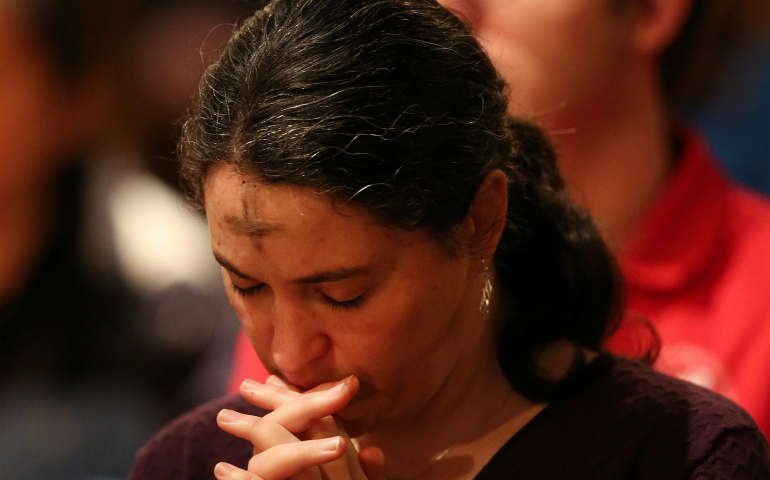
A woman prays during Ash Wednesday Mass March 1 in the Crypt Church at the Basilica of the National Shrine of the Immaculate Conception in Washington. (CNS photo/Bob Roller)
How can we best live the Christian life during Lent?
As we begin the season of Lent this year, it might be a good time to reflect upon what our Christian faith is really all about. Pope Francis is our best resource in making it clear what is important for living a good Christian life. The two articles from The Guardian, cited below, lay out pretty effectively, how we ought to live our lives as followers of Jesus, the Christ.
Pope Francis provided guidance in his morning homily at his private morning Mass. He suggests that it may be better to be an atheist than to be a hypocritical Catholic. But what makes a Catholic a hypocrite? It seems to be a failure to live what he sees as the essentials for the Christian life. He does not include the externals of going to Mass or participating in church activities in the essential category. Rather, he says, I go to Mass, but "my life is not Christian, I don't pay my employees proper salaries, I exploit people, I do dirty business, I launder money."
For Francis, the core of the Christian life is working for social justice. He condemns the sexual abuse of children by priests. He has noted that mafia members excommunicate themselves. He has told Cardinals that they must not act and live like princes. He also said that Catholics should see atheists as good people if they do good.
It is how we treat other people that really matters. While this is a hard saying, it should not be surprising since it is nothing more than a restatement of the Gospel. In the 15th chapter of Matthew it says, "What goes into the mouth does not defile a man; but it is what comes out of the mouth that defiles a man." Matthew also tells us that salvation is gained or lost by what we do for others: giving drink to the thirsty, feeding the hungry, visiting the sick, etc., Matt 25:31-46.
In an earlier article in The Guardian, Pope Francis also makes clear that he is talking about an active involvement in making this world a better place, especially for the poor and needy. Without mentioning a certain American President, Francis gives his full support to those fighting for social justice. In a letter read at the opening of a meeting of grassroots organizations that took place in Modesto, California, he stated that the involvement and participation of the people was necessary.
Francis expresses strong words about what is wrong with some of the world's governments and what needs to be done. He praised those fighting for migrants and the environment amid certain present realities. He decried tyranny and the gutting of democracies. He worried about a process of dehumanization that would be difficult to reverse.
Again, without naming names he criticized leaders who rely on "fear, insecurity, quarrels, and even people's justified indignation, in order to shift the responsibility for all these ills on to a 'non-neighbor." The problems people face today are real he tells us, including the gutting of democracies. He affirms those who stand with migrants and against the dangers to our environment. He cautions against classifying others in order to determine who is our neighbor.
Jesus addressed that issue himself a long time ago. Luke tells the story of the man who fell among robbers and received no help from a priest or Levite, but a Samaritan had pity on the man and helped him. Jesus asks, "Which of these three, do you think, proved neighbor to the man who fell among robbers?" We also need to ask ourselves who we need to be neighbor to in our world and in our country today.
I have been wondering why I have not heard any homilies being preached on the needs of those around us, in light of recent events. It doesn't need to be a political sermon, but could it be clearer that our brothers and sisters need our help, and compassion? Our Muslim, Jewish, Hispanic and migrant populations are being discriminated against. We are seeing a rise in hate crimes. Jewish cemeteries are being desecrated and numerous bomb scares have been called in to Jewish community centers. Immigrants from India were shot, and one was killed, at a bar recently while the shooter shouted for them to get out of his country. American Muslims and mosques are being targeted. Immigration and Customs Enforcement (ICE) agents are rounding up undocumented workers in the middle of the night who have committed no violent crimes.
I think Francis is right. We have a duty to the stranger, the foreigner in our land. Lent may be a good time to reflect on what is happening in our country and ask whether it reflects the essentials of living the Christian life.





